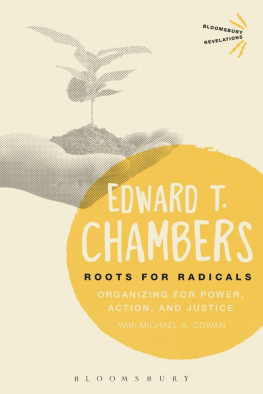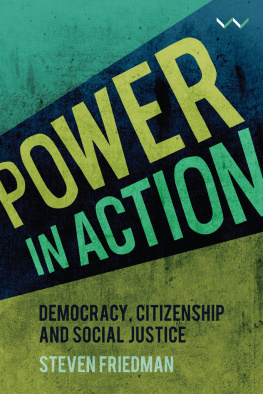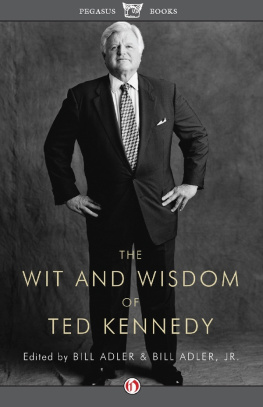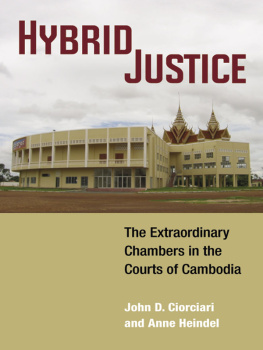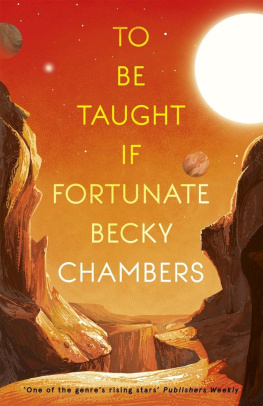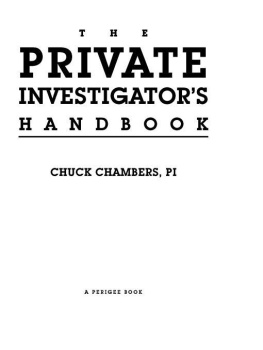Edward T. Chambers - Roots for Radicals: Organizing for Power, Action, and Justice
Here you can read online Edward T. Chambers - Roots for Radicals: Organizing for Power, Action, and Justice full text of the book (entire story) in english for free. Download pdf and epub, get meaning, cover and reviews about this ebook. publisher: Bloomsbury Publishing Plc, genre: Politics. Description of the work, (preface) as well as reviews are available. Best literature library LitArk.com created for fans of good reading and offers a wide selection of genres:
Romance novel
Science fiction
Adventure
Detective
Science
History
Home and family
Prose
Art
Politics
Computer
Non-fiction
Religion
Business
Children
Humor
Choose a favorite category and find really read worthwhile books. Enjoy immersion in the world of imagination, feel the emotions of the characters or learn something new for yourself, make an fascinating discovery.
- Book:Roots for Radicals: Organizing for Power, Action, and Justice
- Author:
- Publisher:Bloomsbury Publishing Plc
- Genre:
- Rating:4 / 5
- Favourites:Add to favourites
- Your mark:
- 80
- 1
- 2
- 3
- 4
- 5
Roots for Radicals: Organizing for Power, Action, and Justice: summary, description and annotation
We offer to read an annotation, description, summary or preface (depends on what the author of the book "Roots for Radicals: Organizing for Power, Action, and Justice" wrote himself). If you haven't found the necessary information about the book — write in the comments, we will try to find it.
Roots for Radicals: Organizing for Power, Action, and Justice — read online for free the complete book (whole text) full work
Below is the text of the book, divided by pages. System saving the place of the last page read, allows you to conveniently read the book "Roots for Radicals: Organizing for Power, Action, and Justice" online for free, without having to search again every time where you left off. Put a bookmark, and you can go to the page where you finished reading at any time.
Font size:
Interval:
Bookmark:
Roots for Radicals
Selected titles in the Bloomsbury Revelations Series
The Sexual Politics of Meat , Carol J. Adams
Aesthetic Theory, Theodor W. Adorno
Being and Event , Alain Badiou
The Language of Fashion , Roland Barthes
The Intelligence of Evil , Jean Baudrillard
Key Writings , Henri Bergson
Intensive Science and Virtual Philosophy , Manuel DeLanda
A Thousand Plateaus , Gilles Deleuze and Flix Guattari
Origins of Analytical Philosophy , Michael Dummett
Marxs Concept of Man , Erich Fromm
Truth and Method , Hans Georg Gadamer
All Men Are Brothers , Mohandas K. Gandhi
Violence and the Sacred , Ren Girard
The Three Ecologies , Flix Guattari
The Essence of Truth , Martin Heidegger
Eclipse of Reason , Max Horkheimer
Rhythmanalysis , Henri Lefebvre
Libidinal Economy , Jean-Franois Lyotard
Cant We Make Moral Judgements? , Mary Midgley
Time for Revolution , Antonio Negri
The Politics of Aesthetics , Jacques Rancire
Course in General Linguistics , Ferdinand de Saussure
Understanding Music, Roger Scruton
What is Art? , Leo Tolstoy
Interrogating the Real , Slavoj iek
Some titles are not available in North America.
To Ann and our children
Eve, Mae, Joe, Lily, and Will
Power is actualized only where word and deed have not parted company, where words are not empty and deeds not brutal, where words are not used to veil intentions but to disclose realities, and deeds are not used to violate and destroy but to establish relations and create new realities.
HANNAH ARENDT
THE HUMAN CONDITION
Never, never do for others what they can do for themselves.
IAFS IRON RULE
Roots for Radicals
Organizing for Power, Action, and Justice
Edward T. Chambers
With Michael A. Cowan
Bloomsbury Academic
An imprint of Bloomsbury Publishing Plc

Contents
From involvement in lifes events we develop a sense of how things are and how they should be. That sense of things is a lens constantly being ground by life experience. It makes possible and limits how we can understand the present. Our understanding in turn makes possible and limits how we can act. When someone dies their lens, the unique, personal, deeply subjective awareness of reality that they developed over a lifetime of experiences, is no more. However much someone has written down how they see things or shared their views in other ways, the accumulated memories and meanings of a lifetime that guided them through every moment of their lives perish with them. Roots for Radicals is a record in his own voice of the lens that Edward Chambers developed in practicing the vocation of community organizing for more than half a century, beginning as a student of two quite different visionaries, Saul Alinsky and Dorothy Day. There are careers and vocations, contracts and covenants. Organizing was Eds vocation and his commitment to it was covenantal, that is, unconditional.
During the last half of the twentieth century, community organizing became part of the vocabulary of English-speaking people. Its meanings are many and varied, but all come down to this: Community organizing is people in civil society acting intentionally in concert with others to change their lives, powered and guided by their own interests and values. The philosophy, strategy and tactics of community organizing, inspired by pioneering labor leader John L. Lewis and devised originally by Saul Alinsky, have spread throughout the world. No movement for change in modern times has so affected the lives of ordinary people in Western nations and beyond. Community organizing in its modern form was invented by Alinsky, but the most significant figure in its spread and development in the last half of the twentieth century was Ed Chambers. Jesus had Paul and Saul had Ed. Christianity would have remained a small religious sect in the backwaters of the Roman Empire without Paul, the founder and organizer of Christian communities. Alinskys insights into how ordinary people can build power for change would have floated away like sensitivity groups and flower power absent Ed Chambers effectiveness in institutionalizing community organizing through the vehicle of the national Industrial Areas Foundation (IAF). He began this project to make organizing a bona fide profession in Chicago in 1969, when he was 37 years old. Its long-term success was the proudest public accomplishment of his lifetime.
As the twenty-first century began, the meaning of community organizing became bifurcated. Those whose families and communities have benefitted in the past fifty years by learning how to organize know it to be a way of practicing democracy locally, a means for ordinary people to join with others to improve their lives. By contrast, those seeking in 201012 to deny a second term to President Barack Obama, who organized in Chicago after finishing law school, have tried to demonize community organizing as a stealth form of communism, with Saul Alinsky as Lenin. One commentator rushed breathlessly on the air with the stunning revelation that Alinsky dedicated his most famous book Rules for Radicals to Lucifer. Talk about demonizing! No sense of irony in sight. The action, as Alinsky taught, is in the reaction. The high-/lowlight of this smear campaign took place during the 2012 GOP Convention when, sarcasm dripping, Sarah Palin sneered at President Obama as a community organizer, contrasting him with herself, a former mayor who had held a real job. This cant may continue but civil society leaders who know firsthand the guiding values and constructive effects of community organizing wont be fooled or deflected by it.
Monsignor Jack Egan, the social justice priest of Chicago and a partner of Ed Chambers for forty years in Chicago organizing and on the national board of the Industrial Areas Foundation, urged Ed to write this book. Egan said: Saul did Reveille for Radicals and Rules for Radicals , but youve gone way beyond his thinking. You need to write what you know before you die. Ill give you a title, Roots for Radicals. That Ed allowed his old comrade-in-arms to name his baby, the testament of his life, is a tribute to the relationship between them. This book captures where the understanding and practice of community organizing has gone since Saul Alinsky left the stage of public life in 1972.
Like people, books emerge from relationships. Roots for Radicals is no exception. Every page here reflects events that transpired in an organizing career of more than half a century. Over decades of leading actions and reflection, Chambers and the senior organizers who worked under his oversightMike Gecan, Ernie Cortes, Arnie Graf, Christine Stephens, Larry McNeil, Dick Harmon, Pearl Ceasar, Jim Drake, Gerald Taylor, Leo Penta, Neil Jamesonwere not just building broad-based community organizations around the country and abroad, they were mining that experience to create a curriculum for training organizers and leaders in the working knowledge and skills of community organizing. That curriculum became the basis for IAFs well-known 10 Day Training, which has been experienced by thousands over the past fifty years. The Dean of the IAF University of the Streets was Ed Chambers. He watched over and saw to the development of its basic training curriculum, fine tuning components inherited from Alinsky and developing new ones, like the teaching on public vs. private life. The IAF curriculum was his baby. Weaving together concepts and stories, Roots for Radicals introduces readers to critical, battle-tested IAF teachings: The tension between the world as it is and the world as it should be, the relational meeting, broad-based community organizing, public vs. private relationships, interests, and the practice of public life. All are taught in these pages in the voice of Ed Chambers.
Next pageFont size:
Interval:
Bookmark:
Similar books «Roots for Radicals: Organizing for Power, Action, and Justice»
Look at similar books to Roots for Radicals: Organizing for Power, Action, and Justice. We have selected literature similar in name and meaning in the hope of providing readers with more options to find new, interesting, not yet read works.
Discussion, reviews of the book Roots for Radicals: Organizing for Power, Action, and Justice and just readers' own opinions. Leave your comments, write what you think about the work, its meaning or the main characters. Specify what exactly you liked and what you didn't like, and why you think so.

